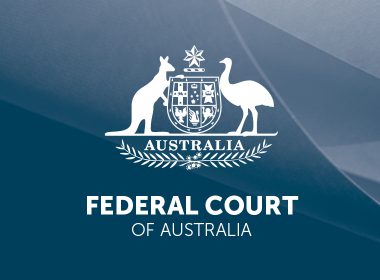Key decisions
- Asaleo Care Limited [2021] FCA 406
- Maxi EFX Global AU Pty Ltd v Australian Securities and Investments Commission [2021] FCAFC 59
- Volkswagen Aktiengesellschaft v Australian Competition and Consumer Commission [2021] FCAFC 49
CORPORATIONS
Scheme of arrangement – application under s 411(1) Corporations Act 2001 (Cth) to convene a meeting to consider a proposed scheme of arrangement by transfer of shares – performance risk
In the matter of Asaleo Care Limited [2021] FCA 406
Background: Section 411 of the Corporations Act 2001 (‘Act‘) provides that where a compromise or arrangement is proposed between a corporation and its creditors or any class of them or between a corporation and its members, or any class of them, the Court may, on an appropriate application being made, order a meeting or meetings of the creditors or class of creditors of the corporation or of the members of the body or class of members, to be convened. In making such an order, the Court may also approve the explanatory statement required by s 412(1)(a) of the Act to accompany notices of the meeting or meetings. The section provides a flexible procedure that permits corporations to restructure debt repayment arrangements with creditors or to reorganise their share capital.
This decision provides a timely refresher of the principles that apply to an application pursuant to the section.
Proposed Scheme: Asaleo Care Limited (‘Asaleo’) manufactures, markets, distributes and sells essential everyday consumer products across the feminine, incontinence and baby care, consumer tissue and professional hygiene product categories.
On 17 February 2021, Asaleo announced that it had entered into a Scheme Implementation Agreement (‘SIA’) with Essity Group Holding BV (‘Essity BV’) in relation to the proposal by Essity BV to acquire all of the shares in Asaleo not already owned by the Essity group. The SIA was subsequently amended to provide, relevantly, that a wholly owned subsidiary of Essity BV is to acquire the relevant shares.
Principles relevant to the approval of a scheme: The Court provided the following helpful summary of the legal principles applicable to scheme applications and, in particular, as to the matters of which the Court must be satisfied on the evidence:
- The applicant is a Part 5.1 body;
- The proposed scheme is an ‘arrangement’ within the meaning of s 411 of the Act;
- The explanatory statement will provide proper disclosure to members;
- The scheme is bona fide and properly proposed;
- ASIC has had a reasonable opportunity to examine the proposed scheme and the explanatory statement, has had a reasonable opportunity to make submissions and has had 14 days’ notice of the hearing date of the first court hearing; and
- Any other procedural requirements have been met.
The Court provided the following useful statement of the standard of review required by the Court (at [19]):
‘In summary, the standard of review is whether the proposed scheme is not inappropriate and is one that sensible business people might consider is of benefit to its members. It is not necessary for the Court to descend into the commercial merits of the proposed scheme. If the proposed arrangement is one that seems fit for consideration by a meeting of members and is a commercial proposition likely to gain the Court’s approval if passed by the necessary majority, then leave should be given to convene the meeting.’
The Court was satisfied that each of the matters relevant to an order convening a scheme meeting under s 411 of the Act had been addressed by the evidence and that it was appropriate to make the orders sought by Asaleo, including those relating to the convening of the meeting, approving the scheme booklet for distribution and the conduct of the scheme meeting.
CORPORATIONS
Appeal from the order of the primary judge under s 70(3) Australian Securities and Investments Commission Act 2002 (Cth) that appellant required to comply with a notice to produce documents
Maxi EFX Global AU Pty Ltd v Australian Securities and Investments Commission [2021] FCAFC 59
The appellant (‘EuropeFX’) provided an online platform for investors to trade foreign exchange currencies and contracts for difference, among other derivatives. It did so in its capacity as a corporate authorised representative of an Australian financial services licensee.
On 30 July 2019, the respondent (‘ASIC’) commenced an investigation under s 13 of the ASIC Act into the affairs and conduct of EuropeFX.
As part of its investigation, on 20 December 2019, ASIC issued a notice to EuropeFX pursuant to s 33(1) of the ASIC Act, by which it sought production of 19 categories of books and records.
EuropeFX asserted to ASIC that the Notice was invalid on multiple bases. It produced a large quantity of documents to ASIC pursuant to the Notice, but unilaterally limited its production in respect of a number of categories.
ASIC contended that EuropeFX had not fully complied with those categories and commenced proceedings under s 70 of the ASIC Act seeking to further compel EuropeFX’s compliance with the Notice.
Section 70 of the ASIC Act provides as follows:
- This section applies where ASIC is satisfied that a person has, without reasonable excuse, failed to comply with a requirement made under this Part (other than Division 8).
- ASIC may by writing certify the failure to the Court.
- If ASIC does so, the Court may inquire into the case and may order the person to comply with the requirement as specified in the order.
After considering the statutory context and the totality of the evidence before the Court, the primary judge was satisfied that an order requiring compliance should be made (Australian Securities and Investments Commission v Maxi EFX Global AU Pty Ltd [2020] FCA 1263). The primary judge explained the nature of the Court’s inquiry under s 70 (at [79]-[81]) and referred to the principles in relation to what might constitute a reasonable excuse (at [82]-[83]).
EuropeFX’s challenge in the Full Court was directed to two of the issues raised before the primary judge: first, whether EuropeFX had possession, custody or control of books which were said to be in the physical possession of third party service providers overseas; and second, whether EuropeFX nevertheless had a reasonable excuse for not producing some or all of the books that it was required to produce, but had not produced, in answer to the notice.
The Full Court unanimously dismissed the appeal.
As to the first issue (possession custody or control), the Full Court (Markovic, Banks-Smith and Abraham JJ) considered that EuropeFX’s appeal grounds were premised on an interpretation of the relevant legal principles inconsistent with those described by the primary judge, notwithstanding that EuropeFX submitted that it did not cavil with the primary judge’s summation of the principles and that no ground of appeal alleged any error of legal principle (at [33]).
As to the second issue (reasonable excuse), EuropeFX accepted that this ground was inevitably interconnected with the other grounds and had not advanced any additional or separate argument in relation to it. Accordingly, the Full Court found this ground was not established either.
CONSUMER LAW
Admitted contraventions of s 29(1)(a) Australian Consumer Law – where primary judge found the agreed pecuniary penalty was manifestly inadequate and imposed a higher civil pecuniary penalty
Volkswagen Aktiengesellschaft v Australian Competition and Consumer Commission [2021] FCAFC 49
Over a period of almost five years, Volkswagen engaged in a course of conduct which involved the deliberate and dishonest deception of the Australian government and Australian consumers, about the exhaust emissions of certain Volkswagen-branded motor vehicles which were imported into Australia for sale. The ACCC commenced a civil penalty proceeding against Volkswagen and its Australian subsidiary, alleging contraventions of s 29(1)(a) of the Australian Consumer Law (‘ACL’) (false or misleading representations about goods or services).
The proceedings ultimately settled. Volkswagen admitted that it had contravened s 29(1)(a) on 473 occasions. The parties jointly filed a Statement of Agreed Facts and jointly submitted that a penalty of $75 million was appropriate.
The primary judge (Australian Competition and Consumer Commission v Volkswagen Aktiengesellschaft [2019] FCA 2166):
- considered that the admitted contraventions constituted an egregious breach of Australian consumer law of the ‘worst kind imaginable’ (at [257]);
- found that the proposed penalty was, in all the circumstances, manifestly inadequate and ‘not sufficient to meet the overriding objects of specific deterrence and general deterrence required in matters such as this’ (at [273]);
- considered that the ACCC’s acceptance of the agreed penalty reflected an ‘overly pragmatic approach’ on its part (at [277]); and
- instead imposed a penalty of $125 million.
On appeal to the Full Court, Volkswagen contended that the primary judge’s exercise of discretion in imposing a penalty of $125 million miscarried in various specific ways and that the penalty imposed was manifestly excessive. The ACCC supported Volkswagen’s appeal, though it took issue with the contention that the penalty imposed by the primary judge was manifestly excessive. Given that there was effectively no contradictor, an amicus curiae was appointed.
The Full Court (Wigney, Beach and O’Bryan JJ) unanimously dismissed Volkswagen’s appeal and held that the primary judge’s exercise of discretion did not miscarry in any material way and the penalty imposed was not excessive, let alone manifestly excessive.

Anthony Lo Surdo SC is a barrister, arbitrator and mediator in 12 Wentworth Chambers, Sydney; Lonsdale Chambers, Melbourne; William Forster Chambers, Darwin and Outer Temple Chambers, London, Abu Dhabi and Dubai.
Theresa Power is a barrister in 12 Wentworth Selborne Chambers, Sydney.



